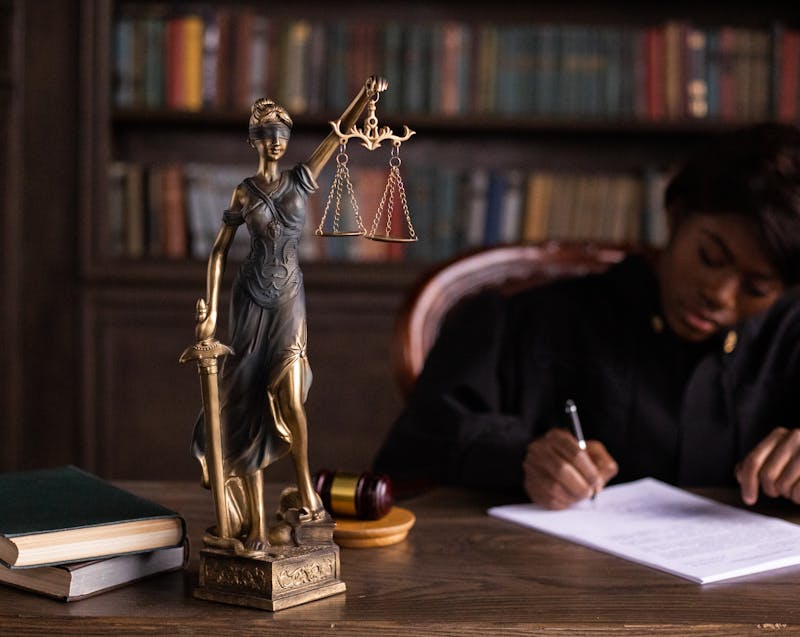What Does a Civil Litigation Lawyer Do? A Complete Guide for First-Time Clients

- A civil litigation lawyer handles non-criminal disputes such as contract breaches, property conflicts, and personal injury claims.
- Their work involves multiple stages—consultation, investigation, filing pleadings, discovery, negotiation, and possibly trial or appeal.
- Most cases are resolved through settlements, not court trials, thanks to strong negotiation skills.
- Hiring a civil litigation lawyer ensures your rights are protected and that all legal procedures are properly followed.
- The best lawyers combine strategy, communication, and attention to detail to achieve favorable outcomes.
- You should consult one if you’re being sued, facing a contract dispute, or unable to resolve a conflict on your own.
- Choosing the right lawyer—someone experienced, communicative, and trustworthy—can make all the difference in your case’s success.
Legal disputes are a part of life. Whether it’s a disagreement over a contract, property damage, or a personal injury claim, these conflicts often require professional legal help to reach a fair resolution. This is where civil litigation lawyers come in. They represent clients in non-criminal cases, ensuring their rights are protected and that legal procedures are properly followed.
If you’ve ever asked yourself, “What does a civil litigation lawyer do?”, this guide will walk you through everything you need to know—from the types of cases they handle to what you can expect when working with one for the first time.
Understanding What a Civil Litigation Lawyer Does
When people think of lawyers, they often picture courtroom battles and dramatic arguments. While litigation lawyers do go to court, their work extends far beyond that. A civil litigation lawyer is a legal professional who manages disputes between individuals, businesses, or organizations where no criminal charges are involved.
Their role is to help clients navigate the civil court system, which covers a wide range of cases, such as:
- Contract disputes – when one party fails to meet the terms of an agreement
- Property disputes – involving land, boundaries, or damage claims
- Employment disputes – wrongful termination, discrimination, or unpaid wages
- Personal injury cases – where someone is harmed due to another’s negligence
- Business litigation – partnership conflicts or breaches of fiduciary duty
Essentially, a civil litigation lawyer is your advocate in pursuing or defending a claim to reach a fair outcome, whether through negotiation, settlement, or trial.
What Happens When You Hire a Civil Litigation Lawyer?
For first-time clients, hiring a civil litigation lawyer can seem overwhelming. However, understanding the process makes it much more manageable. When you first meet your lawyer, they’ll typically follow these steps:
- Initial Consultation: The lawyer reviews your situation, examines documents, and determines if you have a valid claim or defense.
- Investigation: They collect evidence, interview witnesses, and review relevant contracts or records.
- Pleadings: The lawyer drafts and files the necessary legal documents, such as a complaint or an answer to the opposing party’s claims.
- Discovery: Both sides exchange evidence, conduct depositions, and gather testimony to build their cases.
- Negotiation and Settlement: Many disputes are resolved before trial through settlement agreements. Your lawyer will negotiate to secure favorable terms.
- Trial (if necessary): If a settlement isn’t possible, your lawyer represents you in court and argues your case before a judge or jury.
- Appeals: If the outcome is unfavorable, your lawyer can advise on or file an appeal.
A good civil litigation lawyer keeps clients informed, explains each step clearly, and strives to achieve the best possible result based on the facts of the case.
Why Hire a Civil Litigation Lawyer?
Not every disagreement requires a lawsuit, but certain red flags suggest you might need professional legal help. You should consider hiring a lawyer if:
- You’re being sued or have received a legal notice.
- A contract has been breached, and informal resolution isn’t working.
- You’ve suffered financial or emotional damage because of another’s actions.
- You’re in a dispute over property or business ownership.
- You’ve tried negotiation or mediation, but the other party refuses to cooperate.
In these situations, a civil litigation lawyer can assess your rights, explain your options, and guide you through the best course of action.
What Makes a Great Civil Litigation Lawyer?
The best civil litigation lawyers combine strong analytical skills with persuasive communication. Their work involves extensive research, legal writing, and the ability to argue effectively. Qualities that set them apart include:
- Attention to detail: Every fact and document matters in litigation.
- Strategic thinking: Anticipating the other side’s moves is key to success.
- Negotiation skills: Many cases are won through effective settlements, not trials.
- Communication: They must explain complex legal matters in plain language.
- Resilience: Litigation can be lengthy, so persistence is essential.
When choosing a lawyer, it’s important to find someone who understands your case type, communicates clearly, and has experience in local courts.
What Is a Civil Litigation Lawyer’s Role in Court?
If your case goes to trial, your lawyer’s role becomes more visible. But what exactly do they do in court? Civil litigation lawyers represent their clients during hearings, pre-trial motions, and trials. They present evidence, examine witnesses, and make legal arguments to persuade the judge or jury.
Their courtroom duties may include:
- Filing motions to dismiss or request specific rulings
- Questioning witnesses and presenting expert testimony
- Delivering opening and closing statements
- Submitting evidence and cross-examining the opposing party’s witnesses
- Ensuring proper legal procedures are followed
While television shows often dramatize this part of the job, much of a lawyer’s courtroom success depends on the preparation done long before the trial begins. This is why working closely with your attorney from the start gives you the best chance at a favorable outcome.
Final Thoughts: How to Choose the Right Civil Litigation Lawyer
If you’re facing a dispute and wondering what is a civil litigation lawyer, remember that this type of legal professional focuses on resolving non-criminal conflicts fairly and efficiently. Choosing the right lawyer means finding someone who not only understands the law but also listens to your concerns and communicates openly.
Ask about their experience, success rate, and how they approach client relationships. The right lawyer will make you feel informed, supported, and confident throughout the process. Whether your case settles out of court or proceeds to trial, your civil litigation lawyer will be your guide and advocate every step of the way.



